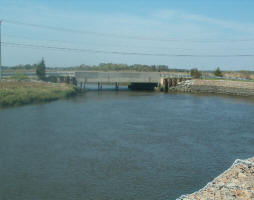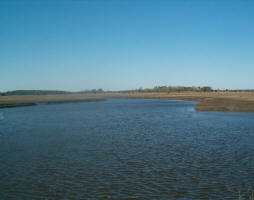 Creating incentives for more effective wastewater reuse in the middle east and north africa
Creating incentives for more effective wastewater reuse in the middle east and north africa
The reuse of treated wastewater is often discussed as an attractive option for addressing water scarcity, yet systematic water recycling remains rare in many arid and semi-arid countries, for example in the Middle East and North Africa (MENA). This paper addresses how the economics of reuse may contribute to this paradox, emphasizing the role played by unresolved incentive problems with management of the externalities associated with wastewater discharges.
A simple conceptual model with two users—one high-value (e.g. municipal/industrial) and the other low-value (e.g. agricultural)—is developed, and related to current conditions in MENA countries.
This model is used to explore first the reasons for which widespread wastewater reuse remains a significant challenge, and second a series of policy-relevant cases for expansion of reuse, including their implications for social welfare.MENA countries are then classified into a typology according to how they relate to the cases.
The paper closes with a series of recommendations for improving water and wastewater management, and on the appropriateness of reuse, in different types of MENA countries.
--
First published in 2011 by The Economic Research Forum (ERF): 21 Al-Sad Al-Aaly StreetDokki, Giza, Egypt
www.erf.org.eg
Copyright © The Economic Research Forum, 2011All rights reserved. No part of this publication may be reproduced in any form or by any electronic or mechanical means, including information storage and retrieval systems, without permission in writing from thepublisher.
The findings, interpretations and conclusions expressed in this publication are entirely those of the author(s) and should not be attributed to the Economic Research Forum, members of its Board of Trustees, or its donors.
| Creator | Marc Jeuland, Sanford School of Public Policy and Duke Global Health Institute; Duke University - Working paper No. 626 (email: marc.jeuland@duke.edu) |
|---|---|
| Publisher | Marc Jeuland, Sanford School of Public Policy and Duke Global Health Institute; Duke University - Working paper No. 626 |
| Type of document | Report |
| Rights | Public |
| File link |
http://www.erf.org.eg/cms.php?id=NEW_publication_details_working_papers&publication_id=1424 |
| File link local |
|
| Source of information | The Economic Research Forum (ERF) - Copyright © The Economic Research Forum, 2011 |
| Subject(s) | ANALYSIS AND TESTS , CHARACTERISTICAL PARAMETERS OF WATERS AND SLUDGES , DRINKING WATER , DRINKING WATER AND SANITATION : COMMON PROCESSES OF PURIFICATION AND TREATMENT , MEASUREMENTS AND INSTRUMENTATION , METHTODOLOGY - STATISTICS - DECISION AID , PREVENTION AND NUISANCES POLLUTION , SANITATION -STRICT PURIFICATION PROCESSES , SLUDGES , WATER QUALITY |
| Relation | http://www.erf.org.eg/CMS/uploads/pdf/626.pdf |
| Geographical coverage | Morocco,Algeria,Tunisia,Mauritania,Libya,Egypt,Sudan,Syria,Palestine,Lebanon,Jordan,Saudi Arabia,Kuwait,Qatar,Oman,Bahrain,Iraq,United Arab Emirates,Yemen, |
 you are not logged in
you are not logged in





